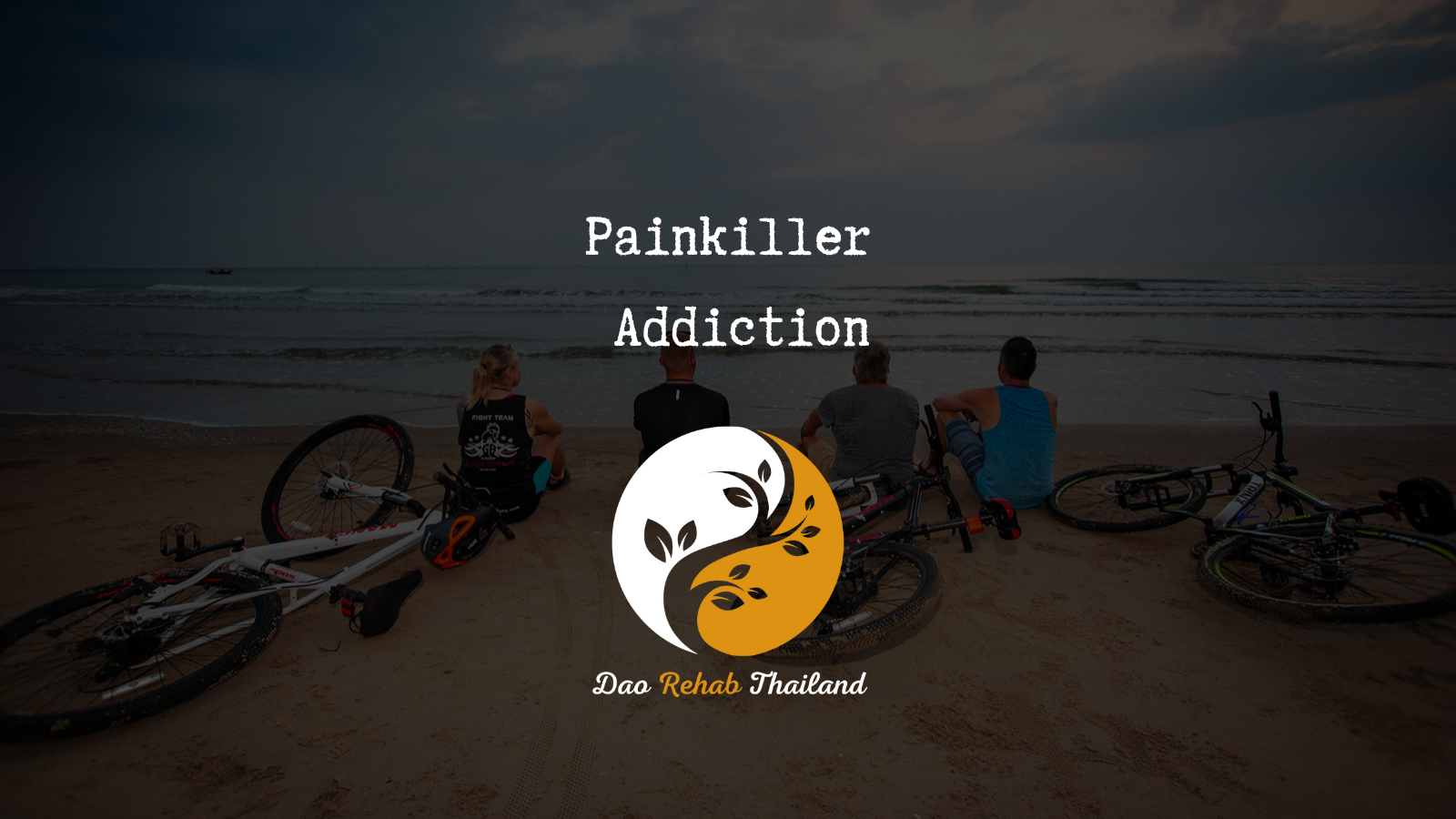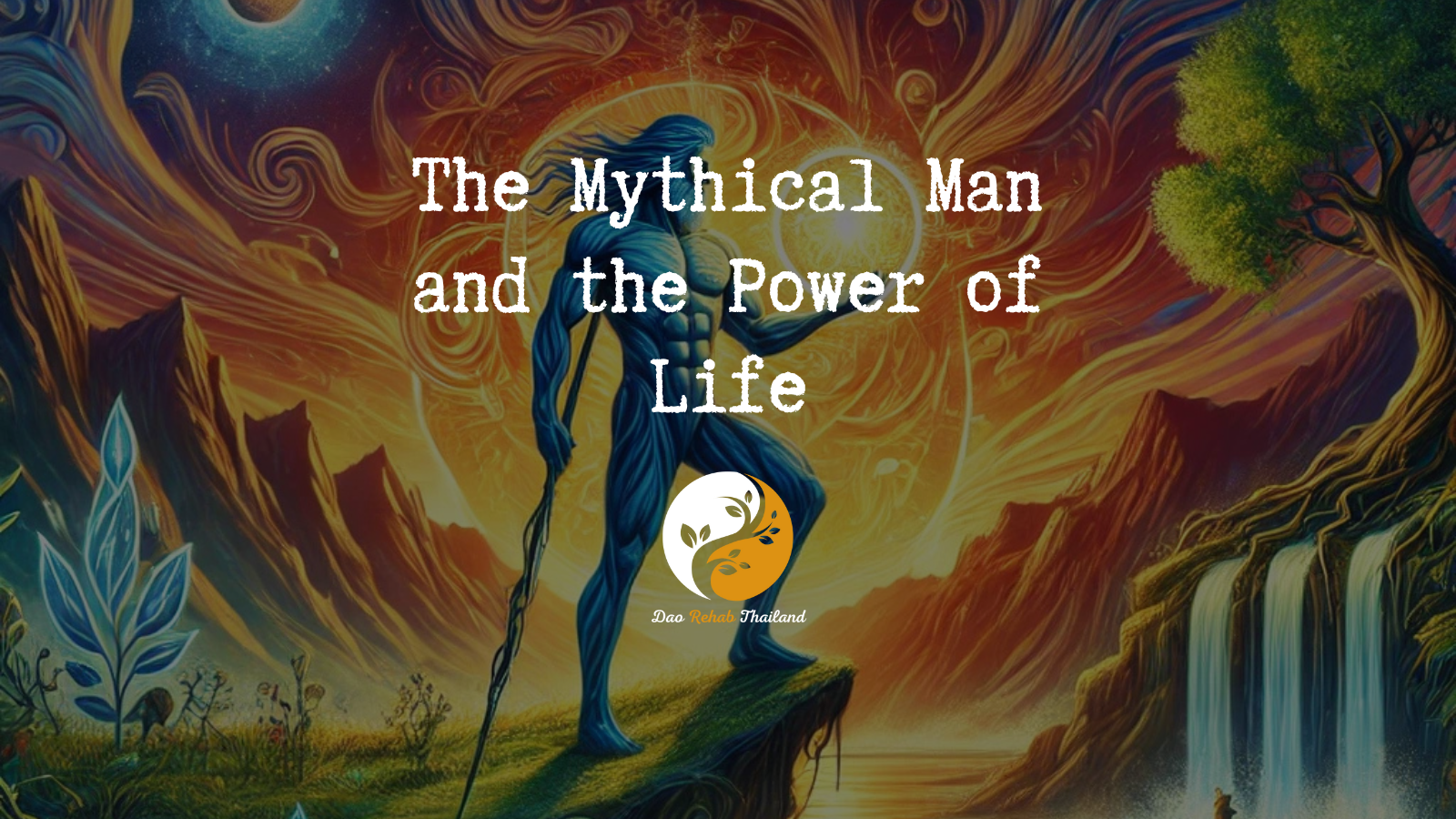
Painkiller Addiction and Treatment in Thailand
Painkiller Addiction
“Turning the impossible into possible”

"Detox from Painkiller Addiction at a Luxury Holistic Center in Thailand and Israel"

An Epidemic of Legal Drug Trafficking
Painkiller addiction is a severe addiction, with instances of human trafficking where doctors drug the public on behalf of pharmaceutical companies. Many have become addicted to these legal drugs, and recovery is challenging, requiring significant sacrifice. In DaoTherapy, founded by Dr. Avraham Mizrahi, personal and group rehabilitation and therapy are offered, either in a day center or through the 12-step program in a group setting. DaoTherapy is Israel’s leading center in this field.
"Holistic Center for Trauma, Addiction, and Mental Imbalance Treatment in Thailand"
“Come to the beginning of the journey to freedom from addiction to alcohol, drugs, and pills, and rediscover your life within the quiet embrace of DaoTherapy Rehab in Thailand—where holistic healing meets empowering recovery.”
DaoTherapy Holistic Rehab
Key Elements of Painkiller AddictionDetox:
Medical Supervision: Painkiller Addictionmust be conducted under medical supervision, as the body may experience withdrawal symptoms. These can include nausea, anxiety, muscle aches, and insomnia. A medical team will monitor and manage these symptoms to ensure the patient’s safety and comfort.
Holistic Therapies:
Holistic Therapies: Many detox programs incorporate holistic therapies such as mindfulness, yoga, and meditation to help individuals cope with stress and anxiety during the detox process. These therapies support the mind-body connection and contribute to overall recovery.
Tapering Process
Tapering Process: Painkiller Addictiondetox often involves a gradual tapering of the drug to reduce withdrawal severity. Doctors will slowly decrease the dosage over time to allow the body to adjust to lower levels of the substance.
Psychological Support:
Psychological Support: Like any addiction recovery process, detox from Painkiller Addictionincludes psychological support. This can involve counseling, therapy, or support groups to address the mental and emotional aspects of addiction.
Post-Detox Treatment:
Post-Detox Treatment: After completing detox, continuing treatment is crucial to prevent relapse. This often includes participation in ongoing therapy, group support, and the development of new coping strategies to maintain sobriety.
there is a global epidemic of misuse and addiction to addictive prescription medications
Yes, there is a global epidemic of misuse and addiction to addictive prescription medications, especially opioid painkillers, anti-anxiety medications, and sleeping pills. These medications, often prescribed for pain relief or mental health issues, can lead to severe dependence and addiction. In many countries, this has become a social and medical epidemic, and efforts to combat it include rehabilitation programs, changes in medical policies, and mental health education.
Half a million Americans have died in recent years due to opioid use, underscoring the severity of the opioid crisis in the United States. This crisis was driven by the increased prescription of painkillers like Oxycodone and Fentanyl, leading to widespread addiction and numerous fatalities. In the past decade, significant efforts have been made to combat this crisis, including restrictions on opioid prescriptions, increased public awareness, and support for addiction recovery programs.

contact us
Contact us with your questions
We would love to speak with you! Feel free to reach out with any questions.

get in touch
Schedule a free consultation
Schedule a free consultation with our team and let’s make things happen!
Risks of Opioids:
- Addiction and Dependence: Opioids can cause severe dependence because they affect the brain’s reward system. High doses or long-term use can lead to addiction.
- Withdrawal Symptoms: Discontinuing opioid use can cause severe withdrawal symptoms, such as pain, anxiety, nausea, and vomiting, which can make it challenging to stop.
- Respiratory Depression and Death Risk: In high doses, opioids can suppress the respiratory system, leading to death, particularly when combined with other drugs like sleep medications or alcohol.
- Mental Health Consequences: Long-term opioid use can lead to depression, anxiety, and severe mood swings.
Development of Dependency
“It begins with pain and ends in long-term suffering.” For those experiencing moderate to severe acute pain, opioid medications are often the most effective for pain relief. However, for patients with chronic (ongoing) pain, opioids represent just one part of a comprehensive treatment plan.
In the absence of other medical solutions or without attempting to discontinue treatment, painkillers may gradually lose effectiveness. Patients then develop a tolerance, necessitating increased dosages to achieve the initial relief. Without increasing the dose, withdrawal symptoms may emerge, creating both physiological and emotional dependency on the medication, which can rapidly become dangerous without medical guidance.
Additionally, some patients report worsening pain over time. In certain cases, this may be due to increased pain sensitivity and decreased effectiveness of the medication, which can even exacerbate the pain. For these patients, reducing the dosage or switching to an alternative medication may be the solution.
Prescription Opioid Medications:
Opioids, which calm or suppress the central nervous system, are among the most common drugs that lead to dependency. They bind to opioid receptors in the body, potentially causing euphoria.
Common opioid medications include:
- Oxycodone (active in medications like OxyContin, Targin, Percocet)
- Morphine (active in medications like MCR, M.I.R)
- Buprenorphine (active in medications like Butrans)
- Fentanyl (active in medications like Fenta, Actiq, Abstral)
The prevalence of dependency on prescription drugs
The prevalence of dependency on prescription drugs, particularly opioids, is due to several key factors:
- Excessive and insufficiently regulated prescriptions: Over the past decades, many physicians have prescribed opioids even for conditions that might have been addressed with other treatments. The popularity of opioids as powerful pain relievers has led to dependency in many patients.
- Rapid tolerance build-up: As patients continue using opioids, the body develops tolerance, necessitating higher doses to achieve the same relief. This process leads to physical and psychological dependence on the medication.
- Euphoric effect: Opioids act on the central nervous system, creating a feeling of euphoria that affects the brain in a way that increases addiction risk.
- Pharmaceutical company pressures: Many pharmaceutical companies aggressively marketed opioids, downplaying the risk of addiction in their communications with doctors and patients. This contributed to the widespread phenomenon of overuse.
Chronic dependency on psychoactive substances
Chronic dependency on psychoactive substances is a condition in which a person develops long-term reliance on substances that affect the central nervous system, such as opioids, alcohol, cannabis, sedatives, and other drugs. This dependency arises as the brain and body become accustomed to the substance’s effects, creating a persistent need for its use to experience relief or escape from emotional challenges. Over time, the risks of withdrawal symptoms, medical and mental health issues, and impaired daily functioning become significantly high, making rehabilitation essential but particularly challenging.
Painkiller rehabilitation through the 12-step program
Rehabilitation from gambling or painkillers is a challenging process that requires perseverance, willpower, and ample support. Originally designed to address alcohol addiction, the 12-step program has since been adapted to help with other addictions, including drugs and painkillers, offering significant advantages in the recovery process.
Though the steps may be similar to those addressing alcohol addiction, the practical tools, spiritual support, and emotional improvement provided by the program are crucial elements that can be beneficial in recovering from painkillers. Here are some aspects of the 12-step program that may assist in this journey:
- Belief in a Higher Power: Recovery from painkillers often requires inner strength and belief in a power greater than oneself to help confront the challenges.
- Managing Complex Emotions: Withdrawal from painkillers can bring up feelings like anxiety and uncertainty. The steps offer guidance on dealing with these emotions in a balanced and controlled way.
- Improvement in Emotional Quality of Life: The program encourages engaging in positive and enriching activities, including social reconnection, reducing reliance on painkillers.
- Spiritual and Community Support: The 12-step community provides crucial support in the recovery journey, even for painkiller addiction.
- Coping with Self-Destructive Impulses: Like the craving for alcohol, the program aids in identifying and reducing the urge to turn to painkillers in times of difficulty.
- A Personal and Spiritual Approach to Growth: Focusing on spiritual development and positive alternatives to painkillers can lead to lasting, healthy change.
In addition to 12-step support groups, professional support is essential for successful addiction recovery, including involvement from psychologists, therapy groups, and methods like DaoTherapy. DaoTherapy, developed by former addicts who experienced their own recovery journeys, provides tools to combat addiction and helps individuals break free from addiction cycles and achieve life-changing transformation.








